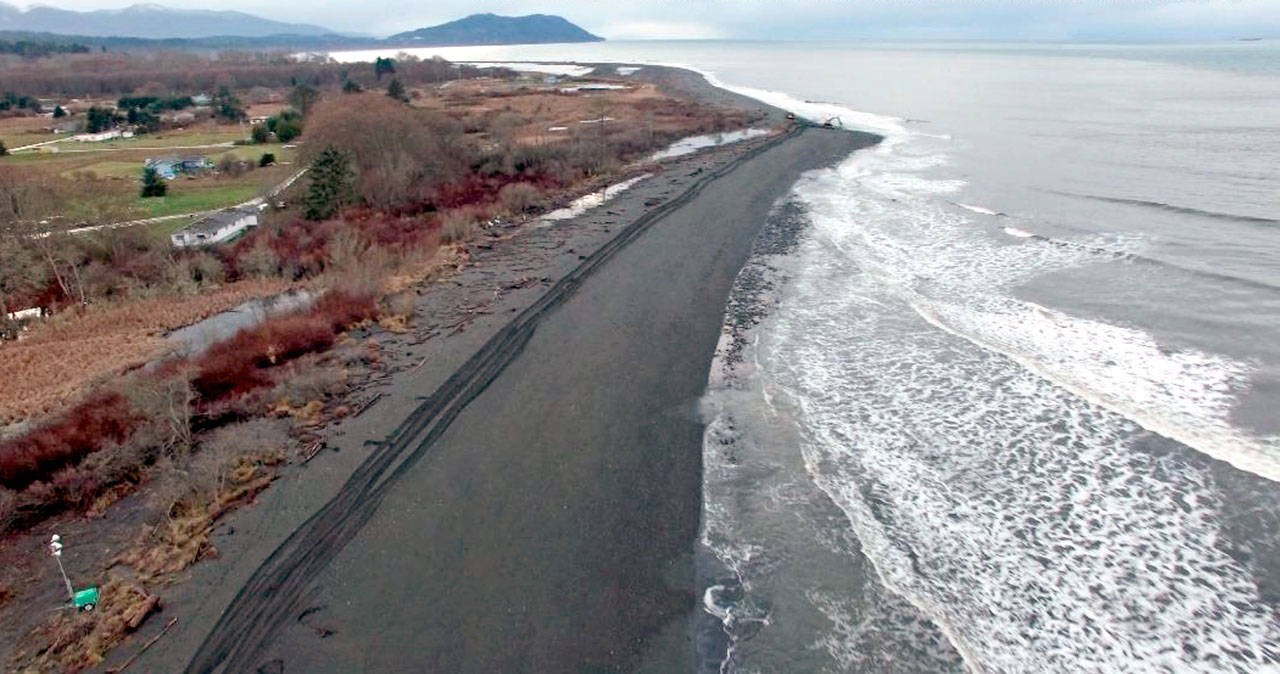PORT ANGELES — A soft opening of the Beach Lake Conservation Area east of the Elwha River mouth is planned Saturday.
Coastal Watershed Institute (CWI) officials will begin with a short presentation at 1 p.m. followed by an informal opening of the property for public use.
The address is 2646 Lower Elwha Road. A short walk is required to access the beach from Lower Elwha Road.
Guests are encouraged to carpool as parking is limited. Dogs and other pets are not allowed.
CWI, which works to protect and restore ecosystems through scientific research and partnerships, secured state and federal funds for the conservation and restoration of the 26-acre Beach Lake parcel east of the Elwha River.
CWI hired a contractor in 2016 to remove derelict armoring that continued to deteriorate the east delta despite the release of hundreds of thousands cubic meters of sediment to the nearshore from the removal of the Elwha and Glines Canyon dams.
“The transformation is just shocking,” said Anne Shaffer, Coastal Watershed Institute executive director.
“It’s really a beautiful beach.”
The previously-armored beach is now broader, less steep and covered with fine grain sand, providing new habitat for sand lance and surf smelt spawning, Shaffer said.
Elwha River sediment is now accumulating on the east delta and farther down the Strait of Juan de Fuca to the mouth of Dry Creek.
“Our theory is that when [CWI project manager] Jamie [Michel] pulled out that rock, he pulled out basically a barrier to the sediment transport along that entire shoreline,” Shaffer said in a Thursday interview.
While more study and sediment mapping is needed, Shaffer said it appears that fine grain sand is now able to migrate down the shore and pile up on the beach.
More changes are expected in the Elwha nearshore in the coming years.
Built in 1911 and 1927, the fish- and sediment-blocking Elwha and Glines Canyon dams were methodically taken out from 2011 to 2014.
“We’re only four years since dam removal ended,” Shaffer said.
“We kind of have an expectation of immediate restoration, but it takes a while. Four years is actually a pretty short time to see changes in the ecosystem.”
As part of the Saturday talk, CWI officials will discuss how the recent combination of king tides and high flows in the Elwha River helped restore the east Elwha shoreline.
Shaffer said the king tides and 12,000 cubic-feet-per-second flows reactivated the west Elwha delta, allowing juvenile coho, chinook, steelhead, adult bull trout, cutthroat and possibly chum to move freely through the reconnected side channels.
“The reconnected hydrodynamic sediment engine of the nearshore Elwha is complex, critically important and visually spectacular,” Shaffer said in a Wednesday email.
The Beach Lake Conservation Area on the east side of the river will provide limited public access, CWI officials said. The restoration site is not a public park.
The Lower Elwha Klallam Tribe has formally stated that it does not want the public to access the delta from the reservation or tidelands in front of the reservation, CWI officials said.
“Please intend to honor these requests and limit your visit to the Beach Lake site and public tidelands there,” CWI officials said in a news release.
Barring unforeseen circumstances, the Beach Lake Conservation Area will be open for day-use and non-motorized foot traffic on the established trail and beach at least 10 feet waterward of the driftwood.
“Absolutely no pets, no camping, no alcohol, no firearms and no hunting or fishing are allowed,” CWI officials said.
“All leave no trace rules apply. Adherence to these guidelines is critical to future public access.”
________
Reporter Rob Ollikainen can be reached at 360-452-2345, ext. 56450, or at rollikainen@peninsuladailynews.com.

